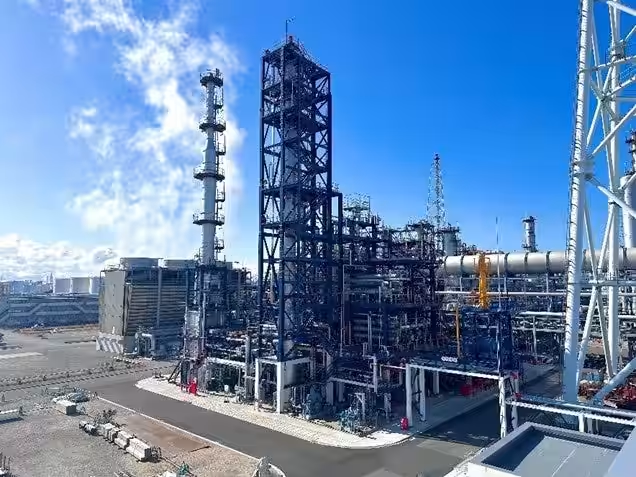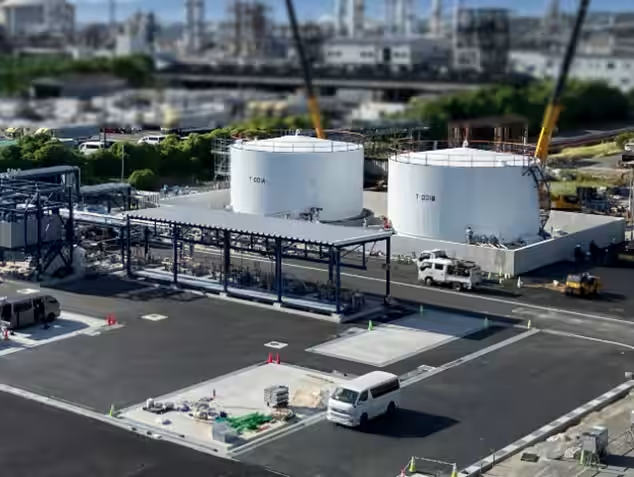

Campaign to Collect Cooking Oil for Sustainable Aviation Fuel Launched in Tokyo
Expanding Collecting Initiatives for Cooking Oil in Tokyo
In alignment with Tokyo's Household Oil Collection Campaign launching on May 2, 2025, three companies, Cosmo Oil, JGC Holdings, and Revo International, are partnering to enhance the recovery of household waste cooking oil for the production of Sustainable Aviation Fuel (SAF). This initiative coincides with the 2025 World Athletics Championships, where approximately 2,000 athletes from over 200 countries will converge in Tokyo.
The Tokyo metropolitan government has motivated citizens to participate in the cooking oil collection campaign, which is part of a broader strategy to transform waste cooking oil into a source of SAF. The collaboration between these companies aims to reduce CO2 emissions generated by aviation through the use of recycled materials. The collected cooking oil will be refined into SAF by Saffaire Sky Energy, a venture funded by the three companies, marking a significant step toward sustainability in aviation fuel.
Objectives and Collaborative Roles
Government and Corporate Collaboration
The Tokyo city government will manage waste cooking oil collection points throughout the city, prominently placing them in municipal buildings and other strategic locations. JGC Holdings will support the campaign by ordering equipment necessary for the collection process, while Revo International will actively gather the waste oil. At the same time, Saffaire Sky Energy operates the only large-scale SAF production facility in Japan, located in Sakai City, Osaka. Cosmo Oil is responsible for distributing the refined SAF to airlines, with a portion expected to be utilized at Haneda Airport.
Campaign Duration and Collection Locations
The campaign will run from May 2 to October 31, 2025, encouraging residents to dispose of their waste cooking oil responsibly. There will be collection points in about 80 locations across Tokyo, with specific sites available on the Tokyo Metropolitan Government's website. Additionally, the main government office will host a collection station on the 2nd floor of its northern exhibition area.
Significance of SAF Production Initiative
The initiative builds upon a foundation laid years ago when Cosmo Oil, JGC Holdings, and Revo International began deliberating on the SAF supply chain in 2020. In 2021, they were selected for a subsidy project aimed at creating a domestic SAF manufacturing supply chain, resulting in the establishment of Saffaire Sky Energy in November 2022. By December 2024, the facility is expected to produce approximately 30,000 kiloliters of SAF annually, with operations commencing in April 2025. Notably, the SAF produced will have obtained ISCC CORSIA and ISCC EU certifications, ensuring that the process meets international sustainability standards.
Community Engagement and Educational Campaigns
In addition to the collection of waste cooking oil, the campaign focuses on educating the public about SAF production and its environmental benefits. Planned activities include events, educational initiatives, and community campaigns designed to raise awareness about sustainable practices. Furthermore, the Tokyo Fry to Fly Project will showcase real-world demonstrations of safe cooking oil recovery at service stations in Tokyo, working with local citizens to foster greater community participation in sustainability efforts.
With a commitment to developing a sustainable society, Cosmo Oil, JGC Holdings, and Revo International are focused on promoting SAF expansions through existing partnerships and community involvement. This synergistic approach not only aims to address waste management issues but also actively seeks to encourage environmentally friendly practices among residents and businesses alike, heralding a new era of sustainable aviation fuel production in Japan.
Conclusion
The collective efforts through the Household Oil Collection Campaign and the commitment to SAF manufacturing underscore a significant advancement in environmental responsibility within Japan's aviation sector. By leveraging community engagement and innovative practices, these initiatives are set to lead not just to resource recovery but to a more sustainable future for the aviation industry.



Topics Policy & Public Interest)










【About Using Articles】
You can freely use the title and article content by linking to the page where the article is posted.
※ Images cannot be used.
【About Links】
Links are free to use.